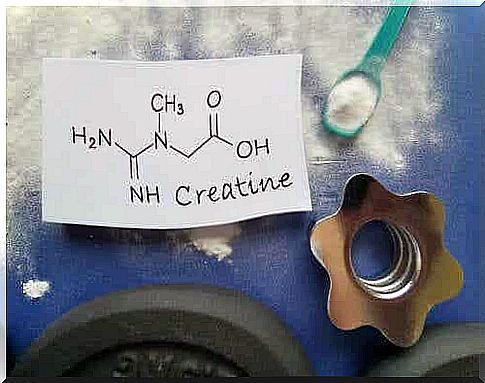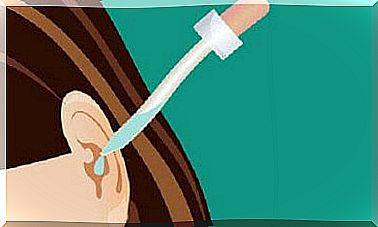Is Creatine Safe For The Kidneys?

Currently, many people have doubts about whether or not creatine is safe for the kidneys. That’s because there’s a lot of information going around that claims it causes damage to these organs. However, this is a myth. However, a number of precautions must be taken when using it.
Let’s not forget that creatine is considered one of the most effective nutritional supplements and can contribute to increased strength and muscle mass. It also promotes performance in high-intensity training. Despite this , the alleged harmful effects of creatine on the kidneys have also been discussed.
Frequent exercisers, especially those who do strength training, often follow a high-protein diet and supplement with creatine. It was suspected that this could cause an excessive strain on the kidneys. So the main question is: is creatine safe for the kidneys? Let’s see.
What is creatine?
Creatine is a molecule that is naturally present in the body. It is made from a number of amino acids found in proteins. We also get creatine from foods such as fish and meat.
Most of the creatine in the human body is stored in the muscles. That is where it performs its most important functions. The body produces about half of the creatine we need on a daily basis. So we have to get the rest through food.
Therefore, creatine is available in the form of a dietary supplement, which is mainly used by athletes to improve performance. However, it is not considered doping. This supplement can help increase:
- power
- resistance
- stamina
- recovery capacity
Creatine Uses and Side Effects

Several studies have been conducted to determine the effects creatine has on the body as a dietary supplement. The main effects identified from these studies include:
- Increased Physical Performance: Creatine basically increases energy levels and is efficient for sprinters and weightlifters. There are convincing studies that show that supplementation with this substance increases the strength of the athlete.
- Slowing skin aging: Certain studies show that creatine in creams can help reduce the signs of skin aging, especially in men.
- Improvement of rare deficiency syndromes: A number of children have rare syndromes characterized by creatine deficiency in their bodies. A creatine supplement can help reduce some symptoms.
If creatine is properly supplemented, this will not cause any damage. However, negative effects of creatine on the kidneys can occur in people who have previously had kidney problems. High doses of this supplement can lead to side effects such as:
- nausea and dizziness
- cramp
- dehydration and fluid retention
- fever and heat intolerance
Is creatine safe for the kidneys?

Coming back to the question of whether creatine is safe for the kidneys, there are at least 12 studies that discuss this aspect. They all conclude that this dietary supplement has no negative effects on the kidneys of healthy adults. It also does not cause damage to the kidneys of people suffering from conditions such as:
- ALS (amyotrophic lateral sclerosis)
- type 2 diabetes
This also applies to women who are in the menopausal or postmenopausal period. Nevertheless , experts advise caution regarding its use in some specific cases.
As mentioned above, this warning is especially true for people with kidney problems or who are at high risk of suffering from them, especially if they consume excessive amounts of protein. There is evidence that excessive protein intake accelerates damage in people with kidney problems (Spanish link).
A myth that has spread
There are a large number of publications stating that creatine is always harmful to the kidneys. However, these statements are based on inaccurate information that has been circulated without real evidence.
Creatine increases creatinine levels in the body, but does so independently of kidney function. However, the creatinine level is an indicator of kidney damage and if a person takes creatine frequently then an elevated level will be seen in urine tests. However, this is not necessarily a sign of kidney problems.
The supplement also generates fluid retention, which is why it is always important to hydrate more often when taking creatine. However, this does not mean that creatine is unsafe for the kidneys when used properly.









